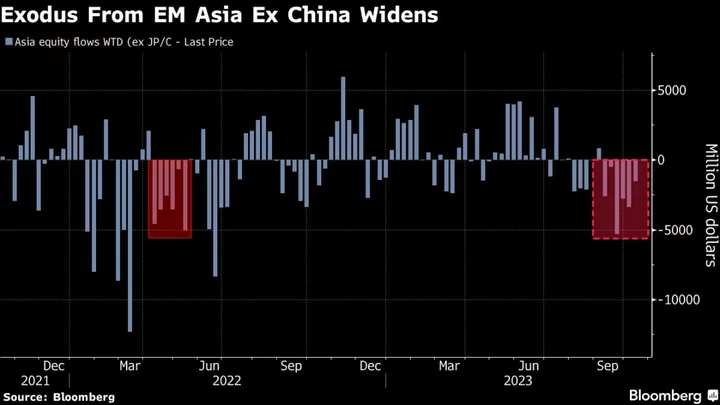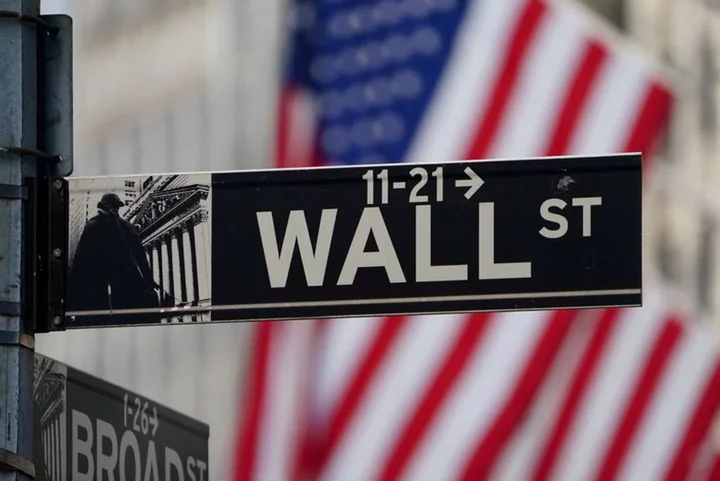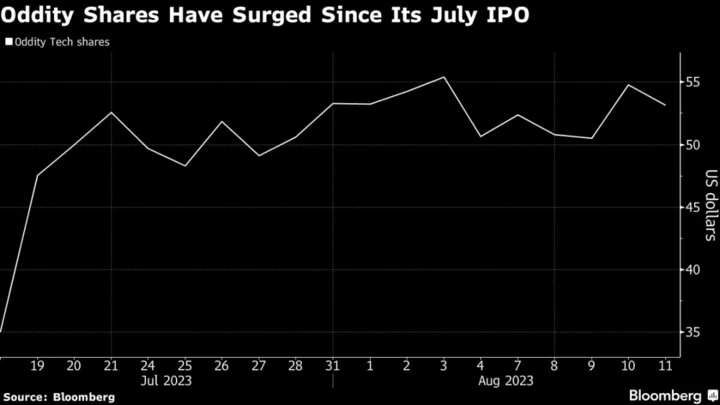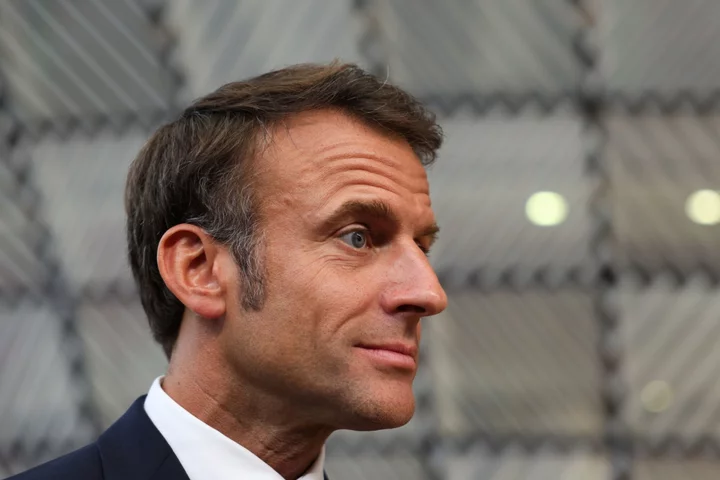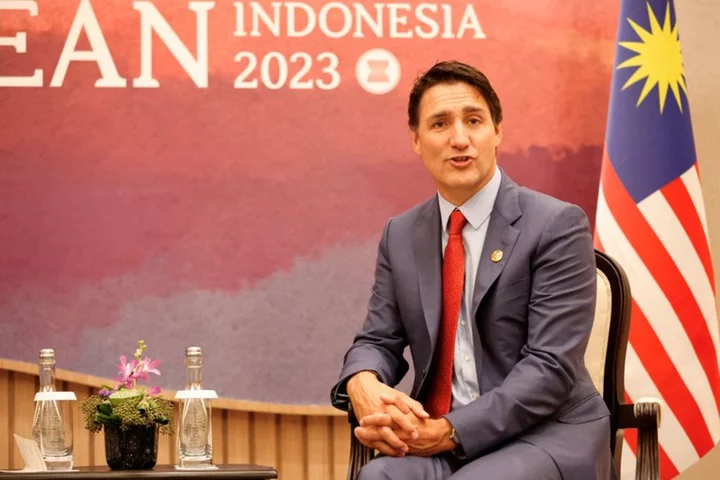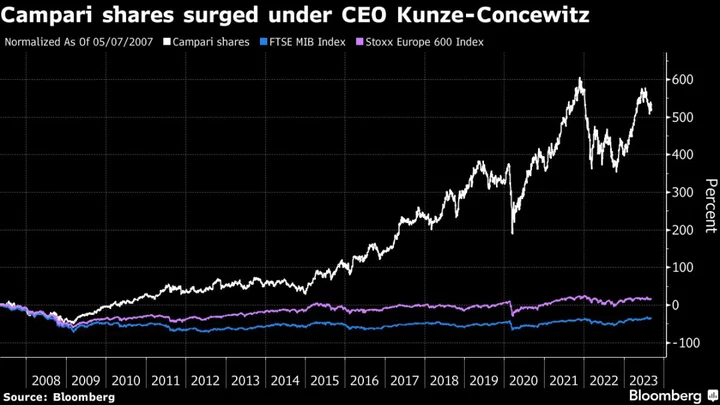Sign up for the India Edition newsletter by Menaka Doshi – an insider's guide to the emerging economic powerhouse, and the billionaires and businesses behind its rise, delivered weekly.
Asia’s emerging equities, excluding China, are poised to see the longest streak of foreign outflows in more than a year as expectations that US rates may remain higher for longer weighed on investor sentiment.
Global investors have sold $16.2 billion worth of stocks in the region since Sept. 4, set for the longest weekly selling stretch in about 16 months, according to data compiled by Bloomberg. The exodus has been led by India, and tech-heavy markets of Taiwan and Korea.
Geopolitical concerns in wake of Israel-Hamas conflict have added to the gamut of risks the region faces including a hawkish Federal Reserve, a slowing China economy and a rally in oil prices. The retreat in US Treasury yields this week from multi-year highs has yet to arrest the outflows.
The exodus shows some cooling of the artificial intelligence-related investment frenzy in the region’s major chipmakers such as Taiwan Semiconductor Manufacturing Co. and SK Hynix Inc. Meanwhile, Indian stocks, the most expensive among major markets in the region, saw foreigners cutting positions in wake of rising oil prices.
To be sure, Beata Manthey, Citigroup Inc.’s global equity strategist, who upgraded emerging markets in July, said in a Bloomberg Television interview on Wednesday that she maintains her stance on the asset class.
EM stocks look cheap and the macroeconomic risks, excluding geopolitics, such as expectations of higher rates have reduced a bit, Manthey said on the sidelines of the Citi-Australia & New Zealand Investment Conference in Sydney.
Broadly, investors have been paring EM equity exposure since the the MSCI Emerging Markets Index hit a peak in July, sending the gauge to the lowest level in 36 years relative to US equities. Exchange-traded funds tracking emerging markets last week saw the biggest weekly outflow in more than a year.
--With assistance from Paul Allen and Shery Ahn.
(Adds Citigroup comment in the fifth paragraph)

